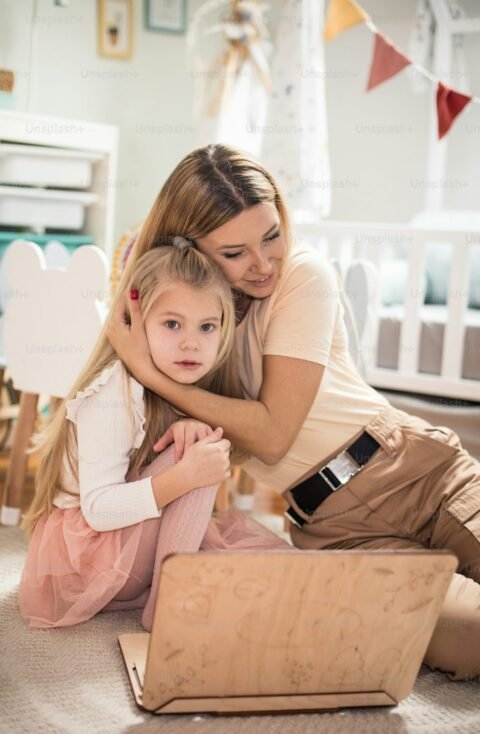Divorce is often one of the most challenging experiences a person can go through. The end of a marriage marks a significant life transition, fraught with emotional upheaval, stress, and uncertainty about the future. In such turbulent times, divorce counselling can be a beacon of hope, providing the support and guidance necessary to navigate this difficult period and rebuild a fulfilling life.
Introduction To Divorce Counselling
A specific type of treatment called divorce counselling is intended to assist people in overcoming the psychological and emotional effects of separation and divorce. This type of counselling addresses a wide range of issues, including grief, anger, anxiety, depression, and self-esteem. It also provides helpful guidance on how to handle the adjustments and difficulties that come with ending a marriage. Divorce counselling is particularly valuable in providing high conflict divorce support, helping individuals navigate the intense emotional and logistical challenges that arise during contentious separations.
Emotional Healing And Recovery
One of the primary benefits of divorce counselling is the emotional healing it facilitates. The end of a marriage can trigger a complex mix of emotions, including sadness, relief, guilt, and anger. A professional counsellor can help individuals process these feelings in a healthy way, allowing them to move forward without being overwhelmed by unresolved emotions.
Counsellors provide a safe, non-judgmental space where individuals can express their thoughts and feelings openly. This emotional release is essential to the healing process because it keeps bad feelings from building up and becoming more serious mental health problems like anxiety and despair.
Building Coping Strategies
Divorce often necessitates significant lifestyle changes, from adjusting to single parenthood to managing finances independently. Although these adjustments can be daunting, divorce counselling can provide people with useful coping mechanisms to manage these additional obligations.
Counsellors work with clients to develop personalized coping mechanisms that suit their unique situations. This could include practical guidance on time management and budgeting, along with stress-reduction methods like mindfulness and relaxation exercises. By developing these skills, individuals can feel more in control of their lives and better prepared to face the challenges ahead.
Improving Communication Skills
Effective communication is essential during and after a divorce, especially if children are involved. Divorce counselling can help individuals improve their communication skills, enabling them to interact more constructively with their ex-spouse and other important people in their lives.
Counsellors teach techniques for clear and respectful communication, which can reduce conflict and misunderstandings. This is especially significant when co-parenting, as good communication is essential to reaching decisions together and giving kids a secure atmosphere.
Supporting Children Through Divorce
Children are often the silent sufferers in a divorce. They may struggle to understand the changes happening in their family and experience feelings of confusion, sadness, and insecurity. Divorce counselling can provide much-needed support for children, helping them process their emotions and adjust to the new family dynamic.
Family counselling sessions can be particularly beneficial, offering a platform for open communication and mutual support. By involving children in the counselling process, parents can help them feel heard and validated, fostering a sense of stability and security during a turbulent time.
Rebuilding Self-Esteem And Identity
Divorce can take a toll on an individual’s self-esteem and sense of identity. The end of a marriage often leads to self-doubt and feelings of failure. Divorce counselling can help individuals rebuild their self-esteem and redefine their identity outside of the marital relationship.
Counsellors assist clients in recognizing their strengths and achievements, encouraging them to focus on personal growth and self-improvement. This process of self-discovery can be empowering, helping individuals regain confidence and a positive outlook on life.
Establishing Healthy Boundaries
Post-divorce relationships, whether with an ex-spouse, children, or new partners, require clear and healthy boundaries. Divorce counselling can help individuals understand the importance of boundaries and how to establish them effectively.
Counsellors provide guidance on setting limits that protect one’s emotional well-being and promote healthy interactions. This is especially important in co-parenting arrangements, where clear boundaries can prevent conflicts and ensure a respectful and cooperative relationship between ex-spouses.
Preparing For Future Relationships
Divorce counselling not only aids in healing from a past relationship but also prepares individuals for future relationships. By addressing and resolving past issues, individuals can avoid repeating negative patterns and build healthier, more fulfilling relationships in the future.
Counsellors help clients understand what went wrong in their previous marriage and what they can do differently in the future. This insight is invaluable for personal growth and developing the skills needed for successful, long-lasting relationships.
Conclusion
Divorce is clearly a difficult and unpleasant experience, but it can also serve as a springboard for development and improvement in oneself. Divorce counselling offers a range of benefits that can help individuals navigate the complexities of separation and rebuild their lives with confidence and hope. From emotional healing and improved communication skills to better-coping strategies and enhanced self-esteem, the support provided by divorce counselling is essential for a healthy, fulfilling post-divorce life.





